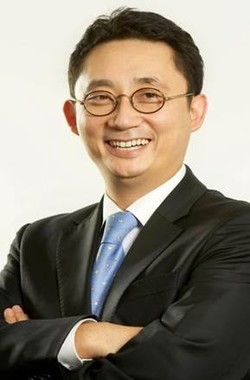Korea will hold the presidential election, the most important event in politics, in 2022. The presidential election is an important momentum that determines the major policy direction for the next five years.

In the healthcare sector, the two main goals – enhancing insurance benefits for better health of the public and advancement of the health industry – will remain unchanged.
However, who takes power in the presidential election will decide how different specific policies will be and greatly impact companies and the health industry.
For example, reinforcing insurance coverage for serious and rare diseases, pushed by the former Park Geun-hye administration, made regulatory changes to allow more innovative drugs to arrive in the local market.
So-called “Moon Jae-in Care,” or the policy to expand national health insurance introduced by the Moon Jae-in government, contributed to revitalizing medical screenings, including MRI, and raising access to new medicines.
The presidential election result significantly affects the next government’s policy direction.
Presidential candidate Lee Jae-myung of the ruling Democratic Party and his rival Yoon Seok-youl of the opposition People Power Party are running for the presidency.
The liberal Lee is expected to focus on distribution through a fair economy. In contrast, the conservative Yoon will likely focus on economic growth based on market principles with economic justice.
Setting up measures to manage health insurance finances will be imperative for both candidates due to the population aging.
However, the two will have very different approaches to solve the problem.
Suppose Lee wins the election and the ruling party takes power again. In that case, his government will continue and expand the Moon Jae-in Care policy, evaluated as the most successful policy under the Moon Jae-in government. In addition, to enhance the health insurance coverage, he is likely to control non-insured care and integrate indemnity and health insurance.
Under the scenario of Lee’s winning, civic groups and health experts advocating the public nature of healthcare will have a stronger voice. Then, the government will try to keep the finance of the National Health Insurance Service sound and tighten control over the healthcare market. Lee’s government is expected to focus more on localizing essential healthcare resources in the health security frame rather than seeing the industry from the perspective of the global economy.
In contrast, if Yoon wins, he will bring sea changes in healthcare policies, including health insurance.
The current conservative camp is opposed to the Moon Jae-in Care. Yoon’s government is likely to emphasize selective health insurance coverage so that those who need health insurance can get the benefit.
Under this scenario, enhancing benefits for rare diseases will be important. Yoon’s government is likely to recognize the necessity of non-reimbursable care and support activating indemnity insurance to expand the choices of healthcare consumers.
Yoon’s government is likely to support the healthcare industry to become globally competitive.
Various cooperation projects will attract foreign patients and help Korean companies expand business overseas.
Then, how should companies prepare for the presidential election?
First, they should thoroughly monitor policy changes that affect their business activities between March 9, when the election is over, and May 9, when the new government inaugurates, a transition team will be operated. Big policy directions set at this time will decide the next five years of the new government, so we need to look at the decision-making process this time closely.
Secondly, companies should be careful not to leak any internal corporate issues such as disputes with stakeholders or civic groups in the early phase of the government’s inauguration. As the first impression is crucial in a relationship, how a company greets the new government can greatly affect the relationship in the next five years.
Lastly, it is time for companies to explain their roles as corporate citizens to society and people strategically. This is because citizens’ power has grown, and the frequent elections every two years make it difficult for the government and politicians to accept claims of companies that do not have social support.
Now is the time for companies to participate in social development to overcome policy risks and improve management sustainability.

